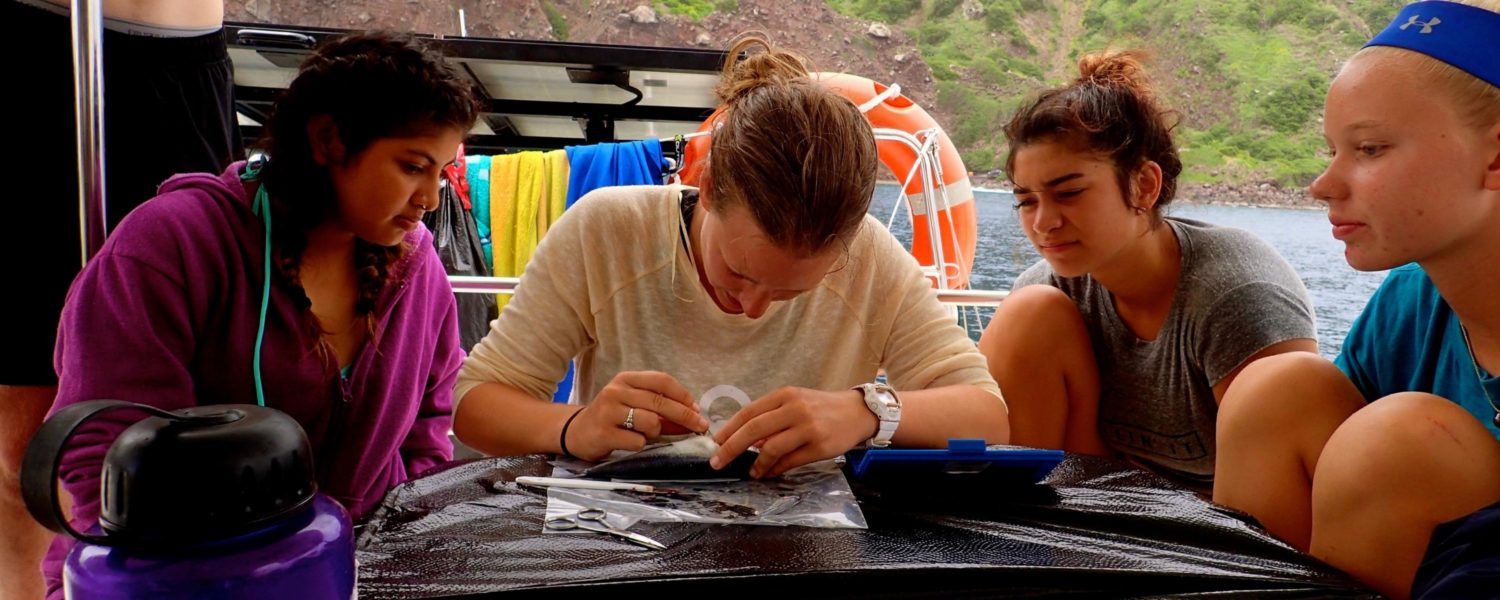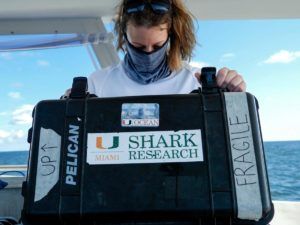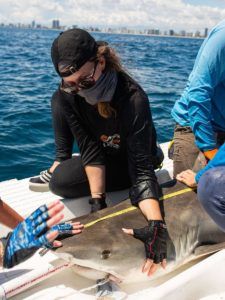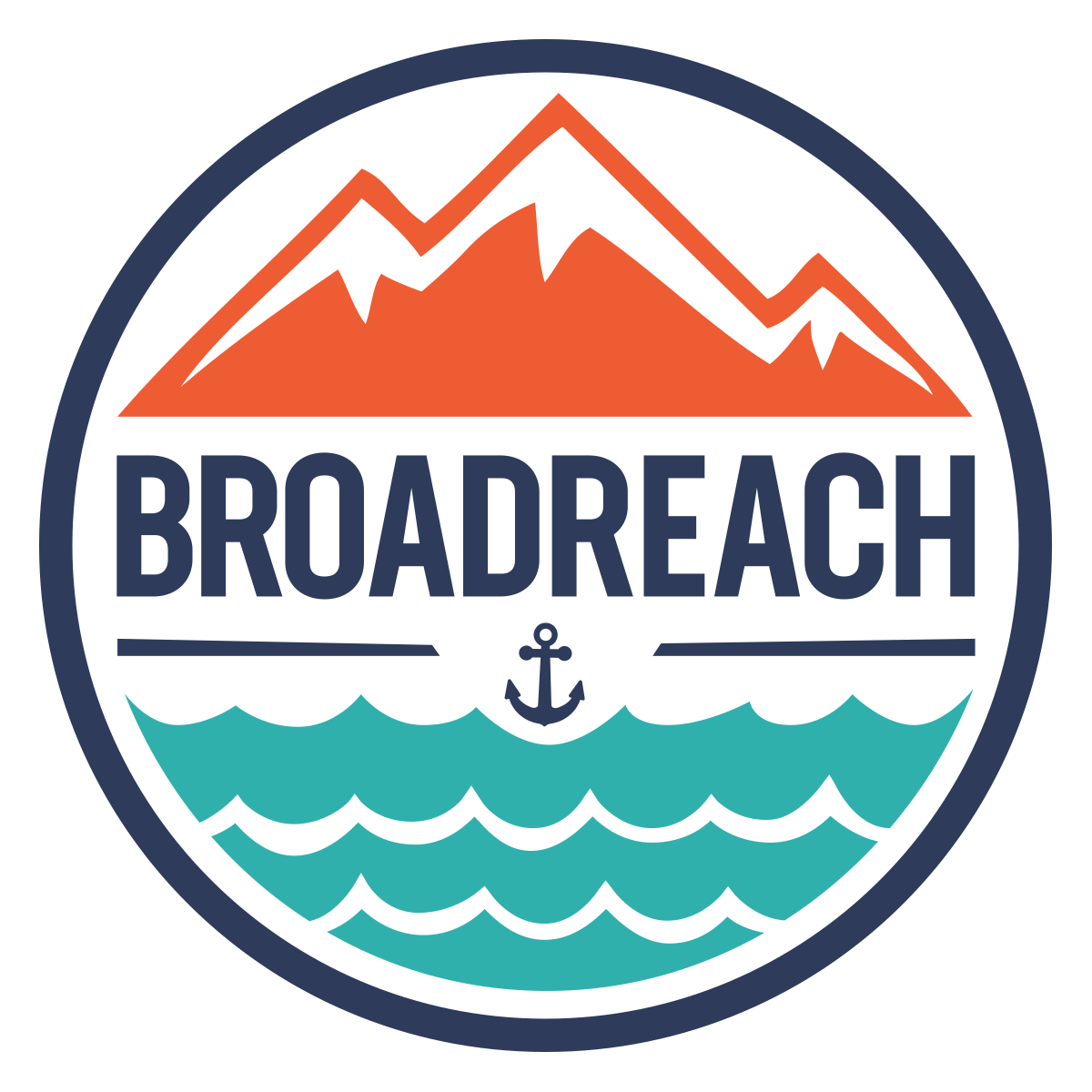
Ask a Marine Biologist: Laura McDonnell
By: Laura McDonnell October 7, 2022 High School Adventures, Marine Biology
At Broadreach, one of our main goals is to help middle and high school students discover their passions through real-life experiences during our summer programs. If you’re like many Broadreach alumni, you’re wondering how to pursue these interests in college and beyond. We asked one of the rockstar instructors in our Broadreach community, marine biologist and shark researcher, Laura McDonnell, to share her experiences and advice with future marine biologists!
What did you study as an undergrad? What advanced degrees and/or professional qualifications do you hold?
Bachelor of Science (Major: Biology), Master of Science (Biology), Ph.D. (Environmental Science & Policy)
What is your relationship with Broadreach?
I have previously led two courses for Broadreach: Caribbean Marine Biology Voyage (Summer 2016) and Fiji Shark Studies [in summer 2017 and summer 2022] let’s go Fiji Shark Studies, 2nd session! 🙂
What do you do when not working with Broadreach?
I’m a Ph.D. Candidate at the University of Miami in the Environmental Science & Policy program. My work examines the use of shark-borne sensors to collect high-resolution ocean temperature data. I am looking at how these data may enable an enhanced understanding of physical ocean changes in remote marine areas like the Gulf Stream. I am asking: can we use data collected from shark tags in climate variability models, shark conservation efforts and dynamic fisheries management?
What do you love the most about what you currently do?
The best part of being a marine biologist for me is that I’m rarely bored and constantly inspired by my colleagues. I regularly work with science communicators and climate, computer & social scientists. Some days I spend at my desk, writing or doing data analysis, and then other days I’m on calls with people all around the world collaborating on bigger projects. And then, of course, I’m out on the boat tagging sharks. The nature of my work changes constantly, but in my experience, what’s been the best part is being able to work with so many amazing and driven people and collaborate to create stronger and more impactful projects. I love the flexibility of being a Ph.D. candidate, in that I can primarily make my own schedule and work remotely when needed. I find it rewarding when I get to engage with the non-academic community such as when I do outreach directly with high school and middle school students on the boat, interviews with the press about recent research and give public talks. Under the increasing footprint of climate change, it is so important that the public understand what we are doing and why to help engage even more people in solutions-based actions.
What skills help you the most to do what you do?
Problem-solving skills and good writing practices are important. A lot of my work involves thinking on my feet, quickly to address issues that come up when working in the field. Marine biology inherently involves writing, you just don’t see that side on social media as much. In my lab, we often say: if you aren’t writing it down, you’re just harassing sharks for no reason. Having patience and being adaptable is also important – I’ve lost count of how many times things didn’t go the way I had planned or the way I wanted. Working with big predatory fish in the ocean teaches you these skills if you don’t already have them!
What’s something you didn’t know about your profession or field that you wish you had known as a teenager?
How important being a team player is, as I’m sure is true in many other professions! Being able to work with people nicely and effectively is critical when working in field environments. Sometimes you must rely on your coworkers to have your back both figuratively and literally when working with sharks and trust is paramount. Being considered for future opportunities in this area is a lot easier if you are known to be someone who works well with others – for certain projects, you may need to live at small remote field stations with little privacy, so having a team that operates well together and gets along is important.
What advice do you have for teens who are in becoming marine biologists?
We’re at a very interesting point in marine biology and conservation. It’s evolving to be an increasingly interdisciplinary field where collaborations and cooperative work is incredibly important in addressing and solving the large-scale issues we’re seeing in global oceans. My advice would be to pursue what drives you, even if that isn’t studying biology directly, because the field needs effective boundary spanners. We need science communicators, we need people in our food industries, in policy and management, to be aware and to care about what’s going on in the oceans. Whether you choose to pursue science specifically or not, we need people working in education, social science, business and arts to maintain interest in our oceans and be open to collaborating to solve many issues. Scientists are often only one piece of the puzzle in solving larger problems.
Do you have a favorite Broadreach memory you’d like to share?
The first time I did the Shark Reef Marine Reserve dive in Pacific Harbor for Fiji Shark Studies in 2017 was a mind-blowing experience. Looking around and seeing how excited all my students were was really rewarding and motivating. I’ve done a lot of shark diving and I’d argue that this is the top shark dive in the world. I can’t wait to do it again!
Laura is a repeat Broadreach instructor and a marine biologist conducting research on sharks. She has led our Caribbean Marine Biology Voyage and Fiji Shark Studies program.

